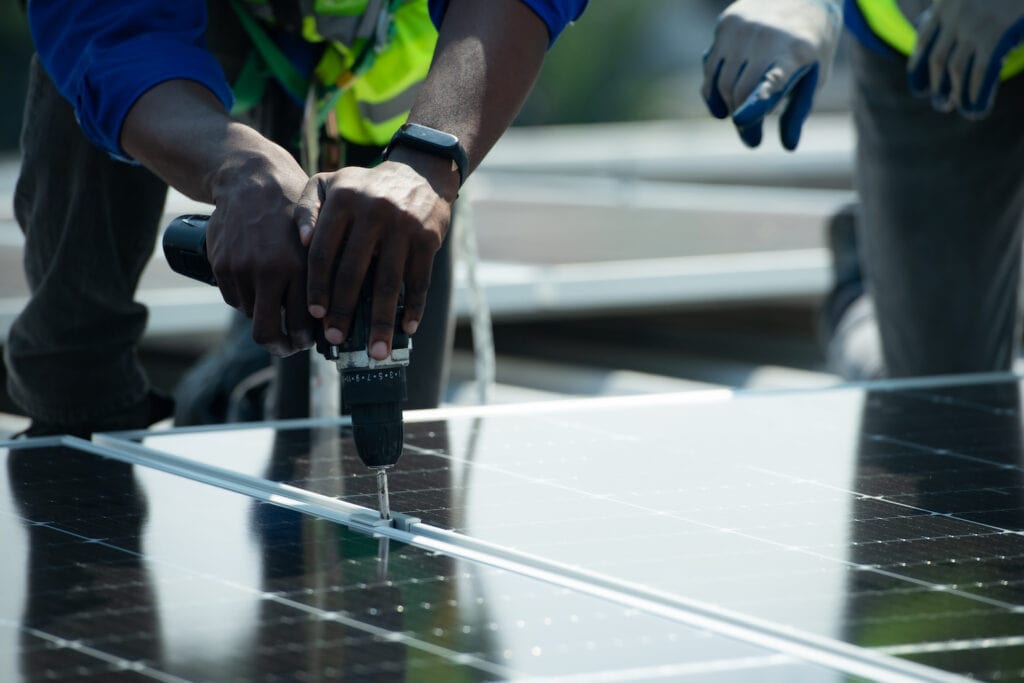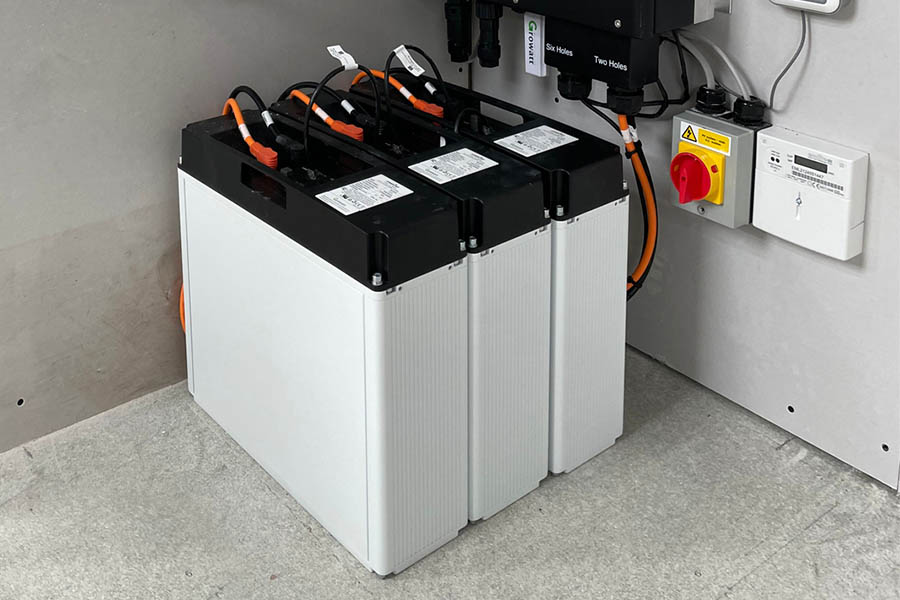As the world moves towards a more sustainable future, it has become increasingly important to find ways to reduce dependence on traditional energy sources and empower homes with renewable energy. Solar batteries are revolutionizing the way homeowners access and store clean energy, allowing them to enjoy greater independence.
By taking advantage of natural sunlight, solar batteries provide an economical and environmentally friendly alternative for powering households across the globe. With their ability to store excess electricity from photovoltaic panels, these systems have become essential components in any home looking for cleaner energy solutions.
This article will delve into how solar batteries are empowering homes with energy storage and independence while reducing reliance on traditional power grids.
Unlocking the Potential of Solar Energy with Battery Storage

The potential of solar energy is immense, with solar batteries now enabling homeowners to take control of their energy independence. The combination of solar panels and battery storage allows users to store excess electricity generated during the day for use at night or on cloudy days, eliminating reliance on utilities and reducing electricity bills.
With this technology, homes can be more self-sufficient in terms of providing clean and renewable electricity that’s also cost-effective. Battery storage also enables households to become part of a larger network by sharing stored energy with others or even selling it back into the grid when there’s an abundance.
This increases efficiency across the board as well as helping boost local green initiatives. Solar batteries are revolutionizing how we think about sustainable sources of power and making them far more accessible than ever before.
With their help, renewable energy will soon become commonplace in our lives—and unlocking its vast potential is just getting started!
Exploring Different Types of Solar Batteries

When it comes to energy storage, solar batteries are an increasingly popular choice. Not only do they offer a renewable source of power, but they can also help reduce your carbon footprint and provide peace of mind in the event of a blackout.
But what kind of solar battery should you choose? Exploring the different types of solar batteries on the market today can help you make an informed decision about which one is right for your home or business. Lead acid batteries are among the oldest forms of rechargeable energy storage systems and have been used since 1859.
They have low upfront costs but require frequent maintenance and shorter life cycles compared to other options on this list. Lithium-ion batteries are becoming more popular with advancements in technology as they offer higher capacity than lead-acid models while being lighter, more compact, better performing, and longer lasting when properly maintained.
Although these models are usually more expensive up front than their lead-acid counterparts, many people find that their long-term performance makes them worth every penny spent. Flow Batteries take a different approach to energy storage by using two tanks filled with electrolytes instead of traditional cells like those found in Lithium Ion models; when charging or discharging takes place, ions move between these tanks through pumps rather than electricity passing through individual cells like with other battery types mentioned here.
Flow Batteries tend to be quite large in comparison due to their size requirements for storing sufficient amounts of electrolyte solution; however, they offer much longer lifespans which makes them great for commercial applications where longevity is key. Finally, Nickel Cadmium (NiCd) Batteries provide reliable performance at relatively low-cost points making them ideal for smaller residential setups or even larger off-grid projects such as cabins near remote areas where power outages may occur frequently without warning – NiCd batteries could prove invaluable during such times!
Maximizing Your Savings with Solar Battery Systems

When it comes to maximizing your savings with solar battery systems, homeowners have the opportunity to take advantage of energy storage and independence. By installing a solar battery in their home, they can reap the benefits of increased efficiency and cost-effectiveness.
Solar batteries provide reliable power during peak times when electricity demand is highest, enabling homeowners to save on their monthly electric bills while also reducing their environmental footprint. With these systems, you can store excess energy generated by your rooftop solar system for use at night or when there are periods of low sunlight.
In addition, they offer backup power in case of an unexpected power outage or brownout. The installation process is simple; all you need is a qualified professional who understands how these systems work and what components are necessary for your specific situation.
Once installed, maintenance costs tend to be low since no fuel or additional parts are required over time – only regular check-ups from a qualified technician. Additionally, many manufacturers now offer warranties that cover any potential repair needs for up to 25 years or more! Overall, investing in a solar battery system will not only help reduce your electric bills but also increase your home’s overall resiliency against sudden outages — making them well worth the investment in the long run!
Understanding the Costs and Financial Incentives of Installing a Solar Battery System

The installation of a solar battery system can come with substantial costs, however, there are also financial incentives that may be available. With the right system and setup, homeowners have the opportunity to reduce their electric bills significantly and even become energy independent.
They can also benefit from lower maintenance costs than traditional electricity systems while protecting against power outages or other grid issues. When it comes to understanding the total cost associated with investing in a solar battery system for your home, there are several factors to consider such as hardware prices, potential subsidies, and financing options.
The cost of hardware will vary depending on a variety of factors including size requirements; whether you choose an off-grid or hybrid system; how many batteries you need; what type of inverter is used; and any additional equipment needed for set up. Depending on where you live, certain government schemes may offer rebates or grants towards these upfront costs which could help offset them substantially.
Some companies may also provide flexible financing options such as zero-down payment plans so that homeowners can spread the payments over time rather than paying all upfront. It’s important to take into account both the long-term savings from reduced electricity bills as well as short-term benefits when deciding if installing a solar battery system is worth your investment since every situation is unique. Doing thorough research before making this decision will ensure that you make an informed choice about whether or not it makes sense financially for your particular needs and circumstances
Conclusion

Solar batteries are revolutionizing the way homes access and store energy. With solar batteries, homes can gain independence from traditional power sources while still enjoying the benefits of renewable energy.
Zeal Energy is at the forefront of this revolution, offering innovative solutions to help homeowners take advantage of their energy storage capabilities. By pairing a solar battery system with rooftop solar panels, homeowners can experience true energy freedom and autonomy – no longer tied to an electric bill or grid outages.
Solar batteries provide reliable backup power in case of emergencies, making them indispensable for any home looking for increased security and sustainability. In short, solar batteries are empowering households across America with greater control over their electricity supply-allowing them to save money on utility bills while also protecting against power disruptions-making it a smart choice for any homeowner looking to go green!






